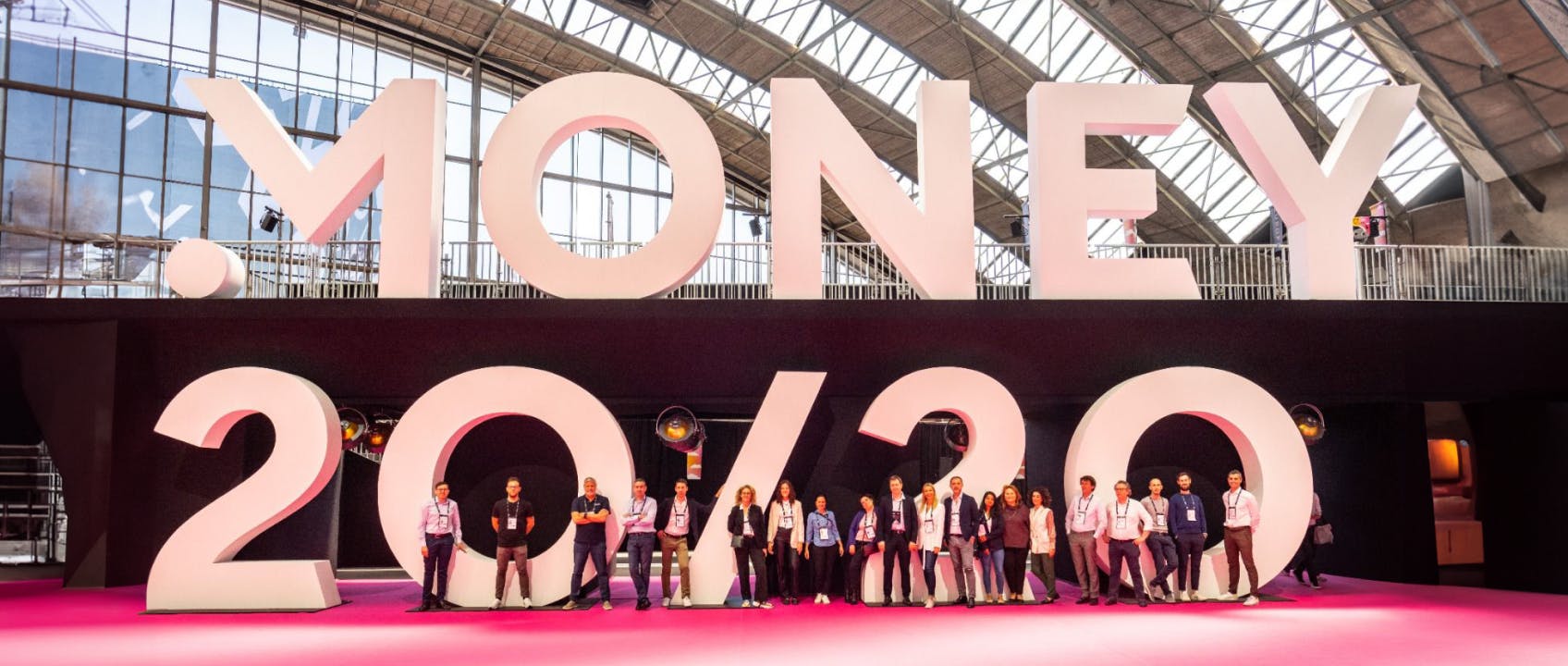Highlights
Embedded Lending revolutionizes financing for businesses and consumers
Providing financing services and lines of credit within the purchasing process is the new frontier of credit. Thanks to fully digital onboarding and KYC processes, more and more companies are integrating loan services into their commercial offer to make the most of these solutions. Find out more.

Highlights
Embedded Lending revolutionizes financing for businesses and consumers

Providing financing services and lines of credit within the purchasing process is the new frontier of credit. Thanks to fully digital onboarding and KYC processes, more and more companies are integrating loan services into their commercial offer to make the most of these solutions. Find out more.
Learn more

Ransomware: a growing trend in the cyberfraud landscape
In an increasingly digital world, data has become both the most valuable asset for businesses and a prime target for online fraud attacks such as ransomware. Find out more about this form of cyber fraud and how to protect your business.
18 December 2024

Payment orchestration for optimised lending platforms: a complete guide
The evolution of online lending platforms has revolutionised access to credit, however, behind securing a loan lies a complex web of financial processes that must be managed with precision and security.
06 December 2024

PSD2 and Open Banking: the revolution of the banking and fintech sector
Open Banking stems from the EU initiative to develop an open and collaborative financial ecosystem: the PSD2.
22 November 2024

5 key measures to prevent digital fraud in the tourism and travel sector
Reducing the risk of fraud and scams is a key challenge for businesses in the tourism sector: discover five key strategies to successfully overcome it, creating a secure environment for both customers and the payment flow of business.
13 November 2024

Payments in hospitality and travel: new payment orchestration trends
Hotels and restaurants are increasingly adopting Payment Orchestration to offer a better payment experience. Discover more about Fabrick's Payment Solutions.
08 October 2024

Online payments for companies: easier with the PIS licence
The PIS licence facilitates online payments to and between companies, enabling them to carry out payments directly from their bank account without accessing internet banking. But the advantages do not stop there.
06 September 2024

What Pay by Bank payments are and how they work
The new form of transfer payment, leveraging the opportunities of PSD2 and Open Banking, revolutionises online and offline payments by enabling direct transactions between bank accounts.
26 July 2024

The introduction of the digital identity in Europe and UK
The introduction of the digital identity could revolutionise the digital payments market in Europe, but what is happening in the UK?
19 June 2024

Open Finance to improve supply chain financial cash flow management
Open Finance represents the new frontier in the field of financial and banking services. Thanks to its open and interoperable nature, it allows companies to integrate solutions to simplify and improve payments and collections within the supply chain.
13 May 2024

Embedded Insurance and Insurtech: benefits and challenges
Embedded insurance is revolutionising the industry by enabling companies to easily integrate insurance services into their own products and services. This gives customers faster and simpler access to the insurance they need.
03 May 2024

The future of payments in 2024: international and consumer-focused
While the digital payments industry is evolving rapidly, one trend remains key: internationalisation and a focus on customer experience. The key to success in 2024 for merchants lies in following these trends and designing a strategy that makes the most of the available technologies.
24 April 2024

Cashless payments in the UK and worldwide
All those payments that are made with alternative methods to cash are defined as cashless: from more traditional methods such as credit transfers or A2A (Account to Account) payments, payments are currently increasingly digital.
21 March 2024

Digital payments and Mobility-as-a-Service (Maas)
From the point of view of payment collection, Mobility-as-a-Service services require solutions capable of handling payments through platforms that allow transactions to be finalised without friction, while guaranteeing reliability, reduced timeframes and a user experience in line with the expectations of its users.
29 February 2024

Fraud prevention: SCA exemptions to optimise the customer experience
Cyber fraud is a growing threat to companies in every sector today, despite the continuous evolution of prevention solutions. The SCA helps prevent online frauds, but how can exemptions be managed and conversion rates improved?
29 December 2023

Receiving and managing recurring online payments
Recurring payments are an integral part of the subscription process of many services and products. What are the types of recurring payments and how is best to manage them?
23 December 2023

The 3DS security protocols for the protection of online purchases
The 3D Secure (3DS) security protocols for the protection of online purchases are a payment protection system created and developed by the leading international payment circuits like Visa and Mastercard, in order to improve the level of security of online transactions with credit and debit cards.
22 December 2023

How Transaction Risk Analysis (TRA) is increasing conversion rate and security in payments
When it comes to fraud prevention, there are some opportunities that came with the PSD2 to ensure the smoothest payment experience to customers while guaranteeing a high level of security and complying with the regulation, improving conversion rates, while also reducing chargeback.
19 December 2023

New business models in retail from the convergence of Open Payments and Open Banking
The open platform model promoted by Fabrick represents the core element of Embedded Finance, enabling the integration of these services, while reducing implementation costs and time to market for launching new solutions, simplifying access, increasing competitiveness and therefore, raising the quality level of B2C services.
18 December 2023

Virtual Credit Cards or Physical Cards: benefits and differences
Even though when we think of credit and debit cards our mind automatically goes to physical ones, virtual cards are now on the rise. However, how do they work and are they safer than their physical counterparts?
15 December 2023
Biometrics in payments: from fingerprint to voice payments
Among the most disruptive technological elements of the last decade that have revolutionised our user experience is biometrics, whose large-scale application to smartphones, and beyond, has paved the way for other areas as well, not least that of payments.
28 November 2023
Bank reconciliation in the era of Open Banking
Bank reconciliation operations require time and precision. The introduction of PSD2 has paved the way for the development of innovative solutions that automate these tasks, reducing costs and operational risks.
27 November 2023

Wealth management, private banking and robo-advisory for asset management
When managing financial assets, it is crucial to know how to choose the ideal tools according to individual needs. Today, players in this field have different solutions at their disposal that can be applied separately or in combination to achieve their clients' investment and planning goals.
21 November 2023

Open Innovation through the Fabrick platform: connect, orchestrate, co-create
Collaboration among cross-industry players on the Fabrick platform and the crossing of financial and non-financial data enable the development of new use cases and business models, accelerating growth and creating new value for customers.
08 November 2023

What is Tokenization and its key role in international payments
Payment tokenization supports businesses to make the most of an efficient payment processing infrastructure while keeping costs down and optimising authorisation rates and performance.
25 October 2023

How Artificial Intelligence is improving the payment industry
Artificial Intelligence is the ability of a machine to perform tasks by replicating human intelligence. What are the main areas of application of AI in payments and how fast is this market growing?
23 October 2023

How Buy Now Pay Later (BNPL) can increase Ecommerce sales and customers’ loyalty
Buy Now Pay Later (BNPL) is a growing global trend many businesses have adopted in their payment offering for their Ecommerce.
28 September 2023

Fashion and payment orchestration: the perfect marriage
Fashion is among the sectors that can benefit the most from the innovative solutions offered by payment orchestration platforms.
27 September 2023

Banking as a Service: what it means and how it works
In the late 1990s and early 2000s, some companies started offering their software solutions in the 'as-a-Service' formula. Today, thanks to the changes introduced by PSD2, banking services can also be provided in this mode.
26 September 2023

Alipay and the payment methods for the Chinese market
The digitisation of the Chinese population has strongly involved both digital and physical payments, which translates into a huge purchasing potential regarding digital payment platforms not only in the domestic market but around the rest of the world. What are the most popular alternative payment systems for the Chinese audience?
07 September 2023

Digitisation of Finance – The Next Chapter
Banking and Financial services firms have long been reluctant to make the most of the potential of digital technology, however they are increasingly using digital technology to change.
05 September 2023

Blockchain and digital payments: the evolution of cross-border transactions
The concept of blockchain has been holding stage for a long time in many media that address issues related to the innovation of digital payments. How can this decentralised technology revolutionise the world of finance?
04 September 2023

The evolution of payments in the Ho.Re.Ca. sector
What are the main solutions companies operating in the catering and hospitality sectors can rely on to remain competitive in an increasingly digital and open market?
31 August 2023

What P2P payments are and how they work
P2P payments via apps and digital wallets are increasingly used for transferring money between people due to their ease of use and low cost. What exactly are P2P payments and how do they impact companies' business models?
29 August 2023

CIT, MIT and COF transactions: differences and use cases
Market growth trends are a clear indicator of customers’ payment preferences at the moment around the world. Ecommerce transactions can be Customer Initiated (CIT) or Merchant Initiated (MIT), some of which are Card On File (COF). Discover more.
18 August 2023

The European Commission is ready to advance Open Banking, Open Finance and digital payments
After a long await, on 28 June 2023, the European Commission announced a wide-range package of proposals to amend and modernise PSD2 with a third Payment Services Directive (PSD3), introduce a brand-new Payment Services Regulation (PSR), advance a new framework for financial data access (FIDA) and set out a framework for a possible new digital form of the euro (Digital Euro).
07 July 2023

Fabrick at Money20/20 2023: Embedded Finance, payments as “relational” driver for businesses, and the rise of the Italian fintech ecosystem
The integration of financial products in non-financial customer journeys can become a strategic asset for companies to streamline their processes, scale internationally, and evolve their business models.
04 July 2023

What smart routing is and how it helps reduce Ecommerce failed transactions
The number of failed transactions can be significantly narrowed by implementing the right payment processing platform based on smart routing.
31 May 2023

PISP, AISP and CISP: the Third Party Providers (TPPs) introduced by the PSD2
The European PSD2 directive introduced a new category of entities, TPPs (Third Party Providers), authorised to access bank data to provide financial and payment services.
31 May 2023

The key role of payment orchestration for Ecommerce growth
A payment orchestration platform helps merchants prevent fraud, maximise conversions and reduce failed transactions.
31 May 2023

PSD2: What it is and how it has changed the EU Payment Services Directive
PSD2 is the European Payment Services Directive that enabled the rise of Open Banking, revolutionising the world of payments.
31 May 2023

How payment orchestration can help subscription economy's growth
Payment orchestration handles all aspects of recurring payments and effectively answers to the payment needs of subscription Ecommerce businesses.
31 May 2023

APIs: what they are and why they are increasingly important in finance
APIs are an essential element for Open Banking and Open Finance, enabling PSD2 to transform the banking sector.
31 May 2023